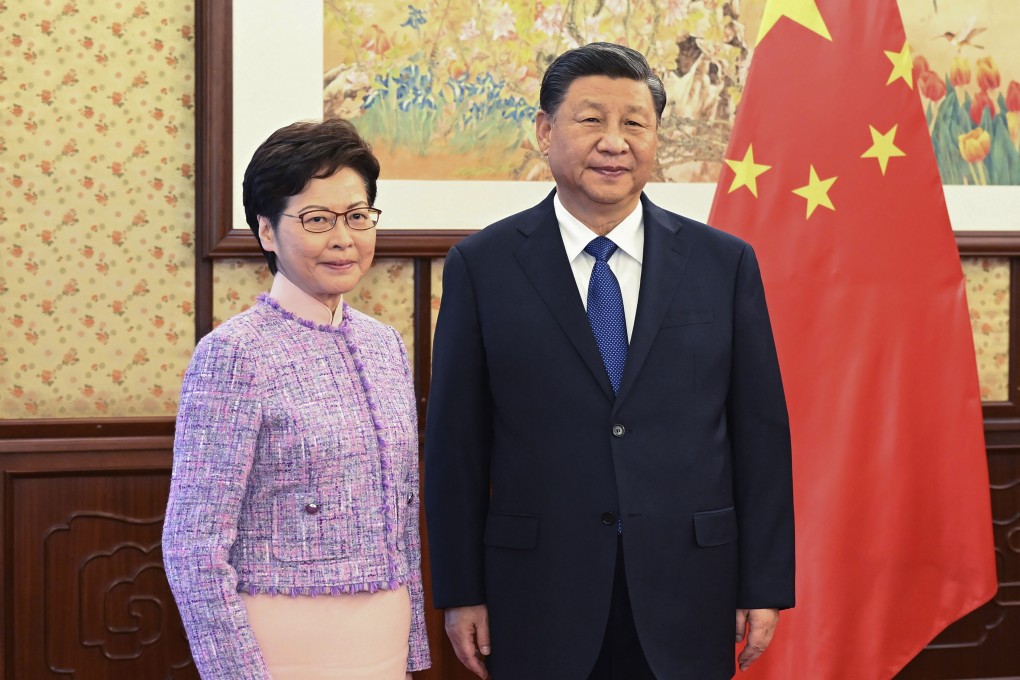Editorial | Call by Xi Jinping on mainland Covid-19 outbreak a timely reminder for Carrie Lam
- Moves by China’s president and Hong Kong’’s leader underline an urgency for more effective measures against Covid-19 on both sides of the border

The battle to contain the recent coronavirus outbreak on the mainland has escalated following a meeting of the Communist Party’s Politburo, with President Xi Jinping stressing the need to curb imported infections, reduce the impact on the economy and people’s lives, and strengthen supervision and accountability for those combating the pandemic.
Separately, Chief Executive Carrie Lam Cheng Yuet-ngor has surprisingly revived a wage subsidy scheme costing HK$31 billion (US$4 billion).
The moves are probably coincidental, but they underline an urgency for more effective measures on both sides of the border to bail the country out of its worst Covid-19 crisis in two years.
The relaunch of a more targeted Employment Support Scheme is a timely step in that direction. Those who run small and medium enterprises may receive a monthly wage subsidy of up to HK$8,000 (US$1,000) per worker, benefiting 1.3 million people earning less than HK$30,000 a month.
This time, businesses not too hit hard by the pandemic, such as supermarket chains and telecoms companies, are excluded. The tweaks appear to have struck a sensible balance between economic support and fiscal prudence.
Along with a proposed one-off HK$10,000 allowance for those who have lost their jobs, the latest moves may, hopefully, provide some badly needed relief.
Lam said the wage subsidies would give employers the confidence to soldier on and prepare for an economic rebound. Hong Kong is fortunate to have a robust war chest. However, there is more to fighting the coronavirus than just pumping in money.

